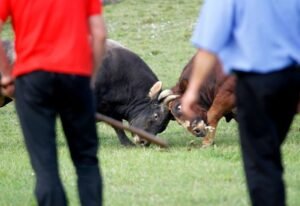The International Tennis Integrity Agency has sanctioned Czech tennis player Nikola Bartunkova with a six-month suspension under the Tennis Anti-Doping Programme (TADP). The 18-year-old athlete tested positive for the prohibited substance trimetazidine in February and March while competing at an ITF W50 event in Trnava, Slovakia, in February 2024 and an ITF W75 event in Maribor, Slovenia, in March 2024.
The player was charged by the ITIA under Article 2.1 of the Tennis Anti-Doping Programme Rules, 2024, for the presence of a prohibited substance in the player’s sample and under Article 2.2 for the use of a prohibited substance without a valid therapeutic use exemption, for which Bartunkova was suspended from April 16, 2024.
After an investigation conducted by the International Tennis Integrity Agency and a test of the supplement by the WADA-accredited Sports Medicine Research & Testing Laboratory (SMRTL) in Utah, USA, the presence of trimetazidine was confirmed. Following the investigation and interview with the player, it was found that the positive tests were caused by contamination of a supplement containing milk thistle extract. Hence, it was proved that the violation was not intentional, and the player bore ‘No Significant Fault or Negligence’. Thus, Bartunkova was only suspended for six months, and the ineligibility period ended on November 11, 2024.[1]
Article 2 of the World Anti-Doping Code specifies the acts constituting anti-doping rule violations. Article 2.1.1 prescribes the athlete’s duty to ensure that no Prohibited Substance enters their body. The Code adopts strict liability for anti-doping violations found in the Rules. Under the strict liability principle, an anti-doping rule violation occurs whenever a Prohibited Substance is found in an athlete’s bodily specimen. The violation occurs whether or not the athlete intentionally used a prohibited substance or was negligent or otherwise at fault. The Court of Arbitration stated the rationale for the strict liability rule for Sport in the case of Quigley v. UIT. Thus, following this precedent, the sanction was reduced.
[1] https://tennisuptodate.com/tennis-news/czech-tennis-player-handed-six-month-ban-after-testing-positive-for-prohibited-substance.



